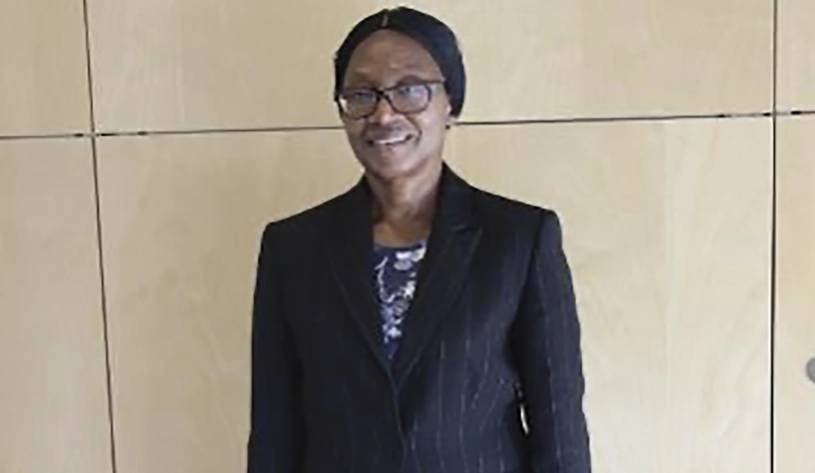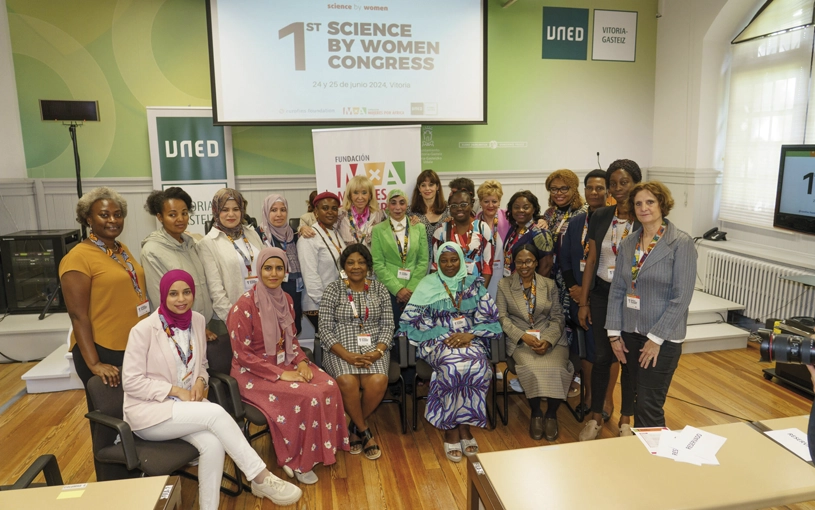Beatrice Olatundun Oluwatayo: Research at CNIC is very inclusive; it covers all areas
Benin University

The researcher Beatrice Olatundun Oluwatayo, with a PhD from the University of Benin, and a master’s in human physiology from the University of Jos, Nigeria, is the first female scientist from Africa to receive a grant from the Women for Africa Foundation and CNIC (through the Severo Ochoa Project) for a fellowship at CNIC. Dr Olatundun Oluwatayo is an experienced full professor and academic vice-rector at the Federal College of Veterinary and Medical Laboratory Technology (FCVMLT) as well as visiting full professor at the Department of Physiology of Madonna University (MAU) and associate dean of the Faculty of Basic Medical Sciences (MAU). She is also a member of various professional organizations like the Association of Medical Laboratory Scientists of Nigeria and the Physiological Society of Nigeria (PSN) among others. Thanks to the Women for Africa Foundation and the Spanish National Centre for Cardiovascular Research (CNIC) (through the Severo Ochoa Project) she has developed the “Gender difference in cardiovascular health among adolescents” Project at CNIC.
How would you evaluate your experience at CNIC?
My experience at CNIC has been very good. When I applied for the grant at CNIC I knew nothing of the centre’s great potential in research. But when I arrived, I was impressed. It isn’t just a centre devoted to experimental research; its research seeks solutions to real problems. I also discovered that research at CNIC is very inclusive; it covers all areas. We talk about translational research, biology, genetic engineering, everything is covered, particularly anything related to the heart. For me, as a haematologist, blood is vital, and the heart is the engine that pumps blood around the body. If the heart fails, the whole body stops functioning. That’s why I see CNIC as a centre of excellence in cardiovascular research that is vital for human existence.
What is the focus of your project?
The initial focus of my project in the cardiovascular area was analysing the effects of alcohol on the cardiovascular system among the adult population. However, when I joined CNIC I discovered that the group I had joined, led by Dr Rodrigo Fernández Jiménez, was working on adolescents. That is important because many future diseases begin in adolescence, or even in infancy. Since I have worked with adolescents for much of my career, I thought it a suitable approach. We are currently focussing on gender differences in the cardiovascular health of adolescents. We have already progressed in data analysis, and we are at the phase of writing up the results.
If it weren’t for the support of the Women for Africa Foundation, I would not have had the opportunity to come to CNIC and participate in this research, which has opened up many valuable aspects to me that I will replicate with my students and young colleagues in Nigeria
Will you continue with the research and your relationship with CNIC when you return to your country?
Yes, I’ll continue working with the group. Although we won’t have published the results yet, we keep in touch. While I was at CNIC, I also organized my team in Nigeria to collect data on my initial objective related with alcohol. Although I don’t have the license to use the statistical software in Nigeria yet, I have been able to attend capacity building courses and conferences like that of the European Haematology Association, thanks to the support of the Women for Africa Foundation.

How do you think the experience acquired here will impact on the Nigerian population and the research?
I asked my team in Nigeria to collect data for analysis with the knowledge acquired at CNIC and continue the work when I return. My objective is to replicate the research in Nigeria and find funding to do so. As a researcher, I went into academic management too early. As a university teacher, when I took on administrative roles, I didn’t have much time left for research. And also, when I finished my doctorate, I was older, and as I wanted to apply for a post-doc, I realized that age was a hurdle, which discouraged me and took me back to focus on administrative work. However, I have conducted some research, although the lack of funding has always been an obstacle. To advance in research like that being done at CNIC we need funding.













